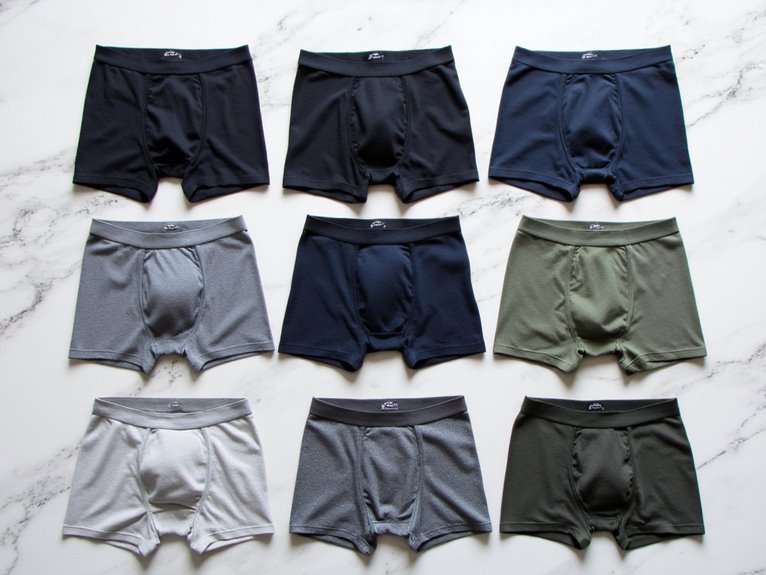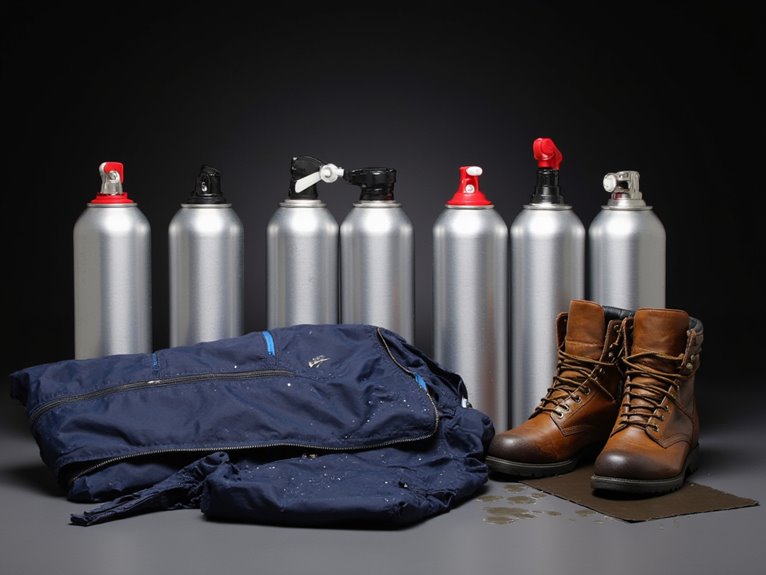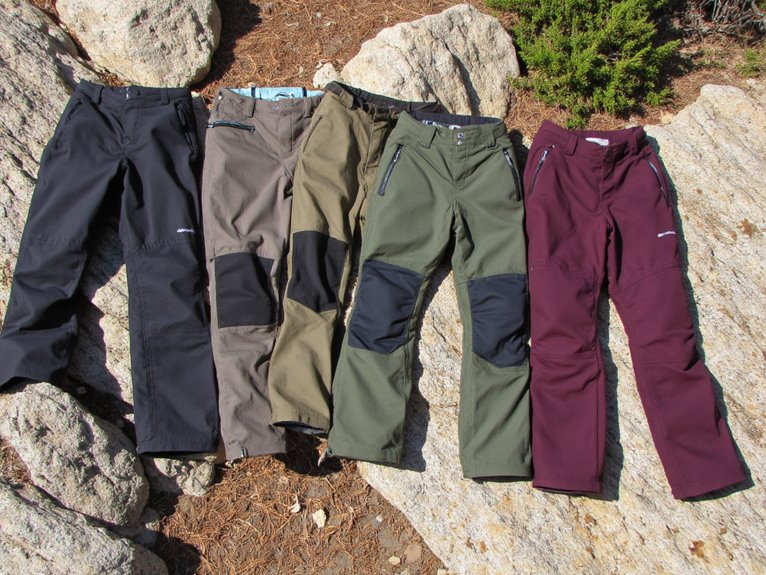Can You Boil Eggs in a Jetboil?
Jetboil's high heat output, capable of producing a maximum of 10,000 BTUs, makes it an ideal cooking solution for boiling eggs efficiently and rapidly while camping or backpacking. The intense heat allows for rapid heating, making it ideal for boiling eggs. Understanding ideal boiling times for different egg sizes and desired levels of doneness is essential. Adjustments for altitude are also necessary to achieve perfect boiled eggs. With Jetboil, you can achieve perfectly boiled eggs, and exploring its capabilities further can reveal even more effective and efficient cooking experiences.
We are supported by our audience. When you purchase through links on our site, we may earn an affiliate commission, at no extra cost for you. Learn more. Last update on 15th January 2026 / Images from Amazon Product Advertising API.
Understanding Jetboil's Heat Output
Jetboil's heat output is rated at a maximum of 10,000 BTUs, which is substantially higher than the average camping stove.
This exceptional heat output enables the Jetboil to quickly bring water to a rolling boil, making it an ideal choice for outdoor enthusiasts.
The high heat output also allows for faster cooking times, which is essential when camping in cold or windy conditions.
Additionally, the Jetboil's heat output can be adjusted to suit various cooking tasks, ensuring that delicate foods are cooked gently while heartier meals can be cooked rapidly.
Moreover, the Jetboil's heat output makes it a reliable and efficient cooking solution for camping and outdoor adventures.
The Science of Boiling Eggs
When dealing with boiling eggs, understanding the underlying science is vital to achieving perfectly cooked eggs every time.
The process involves heat transfer, protein coagulation, and moisture removal.
In the context of submerging an egg in boiling water, heat energy is transferred from the water to the egg, increasing its internal temperature.
As the temperature rises, proteins within the egg white and yolk denature and coagulate, causing the egg to set.
Moisture is simultaneously removed through evaporation, further contributing to the egg's solidification.
The key to perfectly boiled eggs lies in balancing heat input, cooking time, and moisture removal to achieve the desired level of doneness.
Jetboil's Capacity for High Heat
High heat output is a critical factor in successfully boiling eggs, and this is where the Jetboil's design excels, providing a concentrated flame that can rapidly heat water to a rolling boil.
The Jetboil's burner is capable of producing a fierce flame, with a maximum output of 10,000 BTUs.
This intense heat allows for rapid heating, making it ideal for boiling eggs.
Additionally, the Jetboil's heat exchanger technology helps to maximize heat transfer, further increasing its ability to quickly reach high temperatures.
This potent combination of burner power and heat exchanger technology makes the Jetboil an excellent choice for boiling eggs.
Egg Cooking Methods Compared
In the realm of cooking eggs, various methods yield distinct results.
This comparison of stovetop and Jetboil boiling, poaching, and steaming methods will highlight the advantages and limitations of each, providing a thorough understanding of the best approach for achieving perfectly cooked eggs.
Stovetop Vs Jetboil
In the quest for perfectly cooked eggs, outdoor enthusiasts and home cooks alike must consider the merits of stovetop and Jetboil methods, each offering distinct advantages and drawbacks.
Stovetop cooking provides precise temperature control, allowing for delicate heat adjustments, and is often more energy-efficient.
However, it can be slower and may require more attention.
In contrast, Jetboil's portable, high-pressure system rapidly boils water, making it ideal for camping or backpacking trips.
While it can be less fuel-efficient and noisier, Jetboil's speed and convenience make it a popular choice for outdoor enthusiasts.
When deciding between stovetop and Jetboil, consider your cooking environment, available resources, and personal preferences to choose the method that best suits your needs.
Poaching Vs Boiling
Beyond the choice of cooking device, the method of egg cooking itself is also a critical consideration, as poaching and boiling offer distinct results and challenges.
Poaching, which involves cracking eggs into simmering water, yields a delicate, tender product with a runnier yolk. This method requires precision and gentle handling to prevent eggs from breaking apart.
Boiling, on the other hand, involves fully submerging eggs in water, resulting in a firmer, more set yolk and white. Boiling is often preferred for its ease and consistency, but can lead to overcooking if not monitored.
Understanding the differences between these methods is essential for achieving the desired texture and flavor in your hard-boiled eggs.
Steaming Methods
Steaming, a method that occupies a middle ground between poaching and boiling, offers a unique set of advantages, particularly with respect to moisture retention and ease of peeling.
When steaming eggs, the gentle heat and minimal water contact help preserve the delicate flavor and texture of the eggs.
This method also allows for precise control over cooking time, ensuring a perfectly cooked egg every time.
Additionally, steaming helps to loosen the bond between the egg white and shell, making peeling a breeze.
With its ease of use and consistent results, steaming is an attractive option for those seeking a hassle-free egg cooking experience.
One Egg or Multiple Eggs
Deciding whether to boil one egg or multiple eggs in a Jetboil depends on personal preference, cooking time, and the number of people being served.
If you're cooking for one, boiling a single egg might be the most convenient option.
However, if you're preparing breakfast for a group, cooking multiple eggs at once can be more efficient. Jetboil's capacity allows for cooking up to 4-6 eggs at a time, depending on their size.
When cooking multiple eggs, verify they are spaced evenly to allow for proper water circulation and cooking. This will help prevent undercooked or overcooked eggs.
Regardless of the number of eggs, make sure to adjust the cooking time and water level accordingly to achieve the desired level of doneness.
Cooking Time and Temperature
The ideal cooking time and temperature for boiling eggs in a Jetboil depend on the desired level of doneness, ranging from a runny yolk to a firm, fully set yolk.
To achieve the perfect boiled egg, it's essential to control the heat and cooking time.
- 3-4 minutes at 190°F (88°C): Soft-boiled egg with a runny yolk and set whites.
- 5-6 minutes at 194°F (90°C): Medium-boiled egg with a slightly firmer yolk and fully set whites.
- 8-9 minutes at 198°F (92°C): Hard-boiled egg with a fully set yolk and whites.
- 10-12 minutes at 200°F (93°C): Extremely hard-boiled egg with a very firm yolk and whites.
Tips for Successful Egg Boiling
To achieve perfectly boiled eggs in a Jetboil, key factors must be examined.
Proper egg preparation is vital to the process. This includes selecting eggs that are fresh and of high quality, as well as gently placing them in the boiling water to prevent cracking.
Mastering boiling time is also crucial. The boiling time will vary depending on the desired level of doneness, ranging from 3-6 minutes for soft-boiled eggs to 10-12 minutes for hard-boiled eggs.
Making altitude adjustments is essential for outdoor enthusiasts who plan to cook at high elevations. As altitude increases, the boiling point of water decreases, requiring an increase in cooking time.
Egg Preparation Essentials
Before boiling eggs in a Jetboil, it's essential to select eggs that are fresh and of high quality, as they will be more likely to peel easily and have a better texture.
To guarantee successful egg boiling, consider the following essentials:
Egg age: Fresh eggs will result in better peeling and texture.
Egg storage: Store eggs in a cool, dry place to maintain quality.
Egg washing: Gently wash eggs before boiling to remove any dirt or debris.
Egg piercing: Pierce the large end of the egg to prevent cracking during boiling.
To facilitate successful egg boiling, consider the following essentials.
Boiling Time Mastery
Mastering the boiling time is essential, as it directly impacts the texture and doneness of the egg, with even a minute's variation profoundly affecting the outcome.
To achieve perfect doneness, it's vital to understand the ideal boiling times for different egg sizes and desired levels of doneness.
For large eggs, 10-12 minutes yields a hard-boiled egg, while 6-7 minutes produces a soft-boiled egg.
Medium eggs require 9-11 minutes for hard-boiled and 5-6 minutes for soft-boiled.
Small eggs need 8-10 minutes for hard-boiled and 4-5 minutes for soft-boiled.
Altitude Adjustments Needed
Elevation substantially impacts boiling times, and adjusting for altitude is crucial to achieve perfectly cooked eggs in a Jetboil.
At higher elevations, the air pressure is lower, which affects the boiling point of water.
To ensure your eggs are cooked to perfection, consider the following altitude adjustments:
Up to 1,000 ft (305 m): No adjustment needed.
1,000-3,000 ft (305-914 m): Add 1-2 minutes to the recommended boiling time.
3,000-5,000 ft (914-1,524 m): Add 2-3 minutes to the recommended boiling time.
Above 5,000 ft (1,524 m): Add 3-5 minutes to the recommended boiling time.
Alternative Egg Cooking Methods
Alternative egg cooking methods abound, offering a departure from the Jetboil's high heat and pressure.
For instance, steaming eggs is a gentle and effective approach that preserves nutrients and flavor. Simply place eggs in a steamer basket, steam for 10-12 minutes, and rinse with cold water.
Another option is baking eggs in a preheated oven at 325°F (165°C) for 25-30 minutes. This method allows for precise temperature control and easy peeling.
Additionally, eggs can be poached in simmering water or cooked in a thermos using hot water.
These alternative methods provide a change of pace from the Jetboil's intense heat and offer unique benefits for egg enthusiasts.
Is It Worth the Trouble
Weighing the benefits of boiling eggs in a Jetboil against the added effort and specialized equipment required, one must weigh the pros and cons whether the unique advantages of this method justify the extra trouble.
While boiling eggs in a Jetboil offers unparalleled convenience and portability, it's essential to evaluate the trade-offs.
Four key factors come into play:
Convenience: Boiling eggs in a Jetboil is a self-contained process, eliminating the need for additional cooking vessels.
Portability: Jetboils are designed for outdoor use, making them ideal for camping or backpacking trips.
Fuel efficiency: Jetboils conserve fuel, reducing waste and minimizing environmental impact.
Space-saving: The compact design of Jetboils makes them easy to pack and store.



